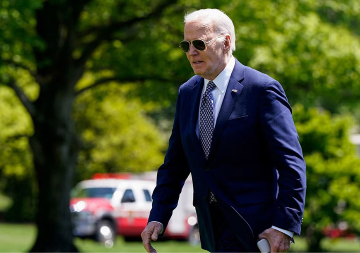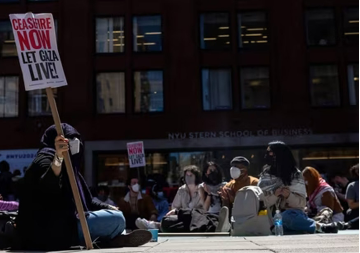
The COVID-19 pandemic significantly heightened the use of virtual spaces for both professional and personal interactions, effectively bridging physical communication barriers. However, with its range of immersive applications beyond traditional online interactions, the metaverse presents extraordinary opportunities for humanity. Captivating virtual environments has sparked our imagination and made us consider novel ways to seamlessly connect and collaborate online. In the metaverse, we can build functional virtual communities in intricately crafted digital worlds.
The growing metaverse market has the potential to transform various aspects of our lives, from work and learning to leisure, travel, healthcare and interactions. It can reform crucial areas such as governance and planning, especially for rapidly growing cities of the Global South. The metaverse can revolutionise how cities are planned and managed while accelerating innovation. Its disruption holds the promise for the people-centric development of cities. How can the metaverse empower and assist urban local governments? How can the metaverse accelerate innovation and investments for developing sustainable and inclusive cities? In what ways can the metaverse reshape urban planning to prioritise people's needs, aspirations and experiences?
Understanding digital twins
Cities have innovatively harnessed technology to enhance the overall quality of urban life. However, the metaverse comes to life through the seamless integration of various technologies and devices involving virtual reality (VR), augmented reality (AR) and mixed reality (MR), bridging the virtual world with the real world. The deployment of powerful graphics processing units (GPUs) and spatial computing technologies enable the creation of lifelike 3D graphics for immersive user engagement. These evolving virtual networks leveraged effectively, can alter future experiences.
Enabling urban governance through the metaverse currently requires the development of a digital twin or mirror as an algorithmic model of a collection of data points duplicating the real-physical world via virtual simulation.
Enabling urban governance through the metaverse currently requires the development of a digital twin or mirror as an algorithmic model of a collection of data points duplicating the real-physical world via virtual simulation. As virtual replicas, digital twins can be used for testing, simulation, and real-time monitoring to gain a deeper understanding of the city. They can also track granular details, such as temperature and vibration, and macro-level observations such as the flow of vehicles through a busy intersection. Digital twins can also help minimise emissions from both new and old buildings, saving up to 35 percent on the project and building costs.
In the context of urban planning and infrastructure management, digital twins can help optimise asset performance, reduce costs, manage disaster response and improve public safety. At the heart of digital twins is digital project delivery (DPD), which facilitates seamless data-sharing between stakeholders. DPD can help cities reduce project delays and cost overruns, improve quality and safety, and create a digital record of asset data to be used throughout the asset lifecycle. For instance, in 2021, South Korea’s Incheon used ArcGIS to examine the impact of climate change on mosquito populations in the Korean peninsula for identifying and controlling dengue in vulnerable locations.
Frameworks that can lead
In recent times, cities have effectively transitioned into the metaverse, using it as a forward-looking platform to identify challenges and enhance their services. For instance, in 2021, the Seoul Metropolitan Government invested US$3.3 million in a five-year plan for enabling a 3D depiction of the City Hall through a virtual-reality headset that facilitated citizens’ interactions with virtual representations of Seoul’s administration, including a Virtual Mayor’s Office. This public encounter not only surpassed bureaucracy but provided a seamless and speedy experience expanding access to public services beyond geography.
Another example of immersive citizen engagement involves New Rochelle's input tool used in the planning of redevelopment projects. With the help of a dedicated platform, residents as ‘digital human twins’ can experience proposed changes in the built environment more realistically. Furthermore, Wellington’s digital twin in New Zealand helps citizens work around their daily life choices that impact climate change by projecting different scenarios for the future of the city. Also, the Dubai metaverse is aiming to foster innovation and attract investments to support Web3.0 technologies for creating new governmental work models.
Going a step further, Seoul has extended the city’s digital commerce and virtual offices to boost small companies and local businesses in the metaverse, even a virtual shopping mall. On the other hand, Shanghai has inserted a resilience and risk response through digital twin simulations of earthquakes, police chase or fire forecasts. Similarly, Brisbane in Australia and Singapore are working in the metaverse towards sustainable and resilient urban planning.
India, too, has made notable progress in its foray into the urban metaverse. A collaboration between Esri India and Genesys International is assisting Indian cities in implementing digital twin technologies through artificial intelligence (AI) and machine learning (ML). Cities such as Amravati and Mumbai have already started work, while twenty more will be ready by the end of 2024. Using mapping technologies and creating 3D imagery, digital twins will be utilised for a variety of urban services from telecom infrastructure to enabling renewable energy development, providing access to low-cost EV charging stations, and enhancing the speed of delivery in e-commerce.
In embracing the metaverse, data-driven smart cities can unlock transformative possibilities for urban life quality for building new planning models.
Nonetheless, the metaverse is not without its inherent challenges. Processing vast amounts of virtual data at the state and national levels could significantly slow down and complicate the scaling of applications to be available for all, especially in cities that are overcrowded and congested. Effective maintenance of metaverse infrastructure, networking capabilities and digital privacy can become expensive and cumbersome for municipal bodies. Moreover, developing urban agglomerations will have the additional burden of educating and creating awareness among communities for integrating metaverse everyday experiences, especially where cities grapple with issues related to the digital divide.
People-oriented urban futures
Despite the concerns, metaverse promises the application of technology to positively influence urban quality of life. The meaningful application of this intense disruption can come from early planning to rethinking city governance and putting people at its very core.
· Enhanced public participation: Local governments can augment public participation by investing in metaverse platforms that empower citizens in urban planning and encourage bottom-up approaches. This will primarily require affordable access to reliable internet services and gadgets. It will be key for municipal bodies to stimulate businesses for creating innovative metaverse experiences that provide real-time feedback. Further, establishing transparent and inclusive guidelines and infrastructure for metaverse-based participation can ensure diverse perspectives in shaping the urban landscape.
· Viable urban governance and capacity building: Urban entities should cultivate innovative financial models and seek partnerships for the development and administration of metaverse data and applications. It will be crucial to prioritise capacity-building programmes aimed at training municipal staff to proficiently navigate and stay current with the continuously evolving metaverse technology. Governments must promote Web3.0 technology integration for data management and transparency. They will have to ensure exhaustive regulations and standards focusing on privacy, accessibility, and freedom of expression. Such initiatives must be accompanied by fostering digital literacy and educational programmes for administering content, managing addiction and safeguarding mental health.
· Simulation and need-based urban planning: Municipal bodies should consider implementing metaverse-based simulation tools for urban planning, allowing for experimentation and community feedback before making real-world changes. They could also work towards creating a metaverse framework for disaster management and sustainability planning to boost city preparedness for various scenarios, while encouraging sustainable practices.
· Ethical considerations and responsible use: Local governments will have to establish content moderation rules to combat fake news, harassment, and inappropriate content. They should also support the development of AI tools for ethical monitoring. It will become essential to collaborate with tech companies to study the metaverse's impact on mental health and well-being to inform relevant policy reforms.
· Economic opportunities and innovation: Urban planners must encourage the development of metaverse-based initiatives that promote economic growth, such as virtual downtown areas or digital marketplaces, offering new opportunities for commerce. Fostering collaboration between local governments, educational institutions, and businesses will be crucial to create metaverse-based educational and training programmes preparing citizens for immersive participation and ready for future job market demands.
In embracing the metaverse, data-driven smart cities can unlock transformative possibilities for urban life quality for building new planning models. By fostering public engagement, sound governance, responsible use, and innovative opportunities, our encounters in the metaverse can pave the way for a more inclusive, sustainable, and prosperous urban future.
Anusha Kesarkar Gavankar is a Senior Fellow with the Centre for Economy and Growth at the Observer Research Foundation.
Samridhi Diwan was an intern at the Observer Research Foundation.
The views expressed above belong to the author(s). ORF research and analyses now available on Telegram! Click here to access our curated content — blogs, longforms and interviews.




 PREV
PREV


